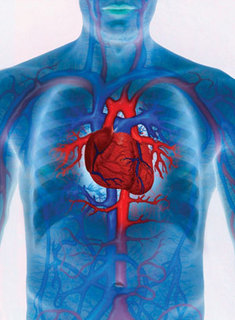European Union supporters in Latvia and Estonia expressed concern Thursday about a new survey pegging their countries as the most EU-skeptical in Europe
Published:
4 August 2003 y., Monday
European Union supporters in Latvia and Estonia expressed concern Thursday about a new survey pegging their countries as the most EU-skeptical in Europe—findings that come just two months before both Baltic states hold referendums on membership. A mere 32 percent of Estonians and 37 percent of Latvians agreed entry would be "a good thing," making them the most pessimistic of those questioned in the EU study released Wednesday. By contrast, 72 percent of Cypriots and 61 percent of Poles said joining would be good for them.
Latvia and Estonia will be the last of 10 EU candidate countries to put the issue of entry to a vote—and observers say there's now a chance that one or both nations could become the first to reject membership in Europe's most powerful multilateral club.
"People are afraid, they don't know what to believe and they're confused," said Pille-Mai Helemae, spokeswoman for the high-profile "Yes to the EU" group in Estonia. "It's going to be a hard fight. But in the end, I'm sure enough people will see more pros than cons to membership." Confusion about the EU was illustrated in the biannual Eurobarometer _ which questioned 1,000 people in each candidate nation in May—with 62 percent of Latvian and 71 percent of Estonian respondents saying they were either poorly informed about the accession process or not informed at all.
The Czech Republic, Hungary, Lithuania, Poland, Slovakia, Slovenia and Malta have already approved EU referendums, most by wide margins. Cyprus is leaving it's decision to lawmakers. If Estonia and Latvia pass their plebiscites on Sept. 14 and Sept. 20 respectively, they would join the EU together with the other candidates in 2004.
Virtually all top leaders in Estonia and Latvia have been pro-EU since the Baltic Sea nations regained independence—arguing that entry will raise their nations international stature, forge vital European trade links and boost living standards.
But official enthusiasm has never been matched outside the halls of power, with many Estonians and Latvians fearing a loss of sovereignty to the EU. Anti-EU groups compare what they say is an overly centralized EU with the U.S.S.R.; one of their symbols is an EU flag stamped with a Communist hammer and sickle.
If the results of the latest survey spooked EU supporters, they delighted opponents. "If you're a EU supporter, I believe the picture is even blacker," said Uno Silberg, who heads Estonia's "No to the EU Movement." "We're confident the referendum will fail."
Šaltinis:
balticsww.com
Copying, publishing, announcing any information from the News.lt portal without written permission of News.lt editorial office is prohibited.
The most popular articles
 The international medical aid agency Medicine Sans Frontieres say the migrants - who are being employed in Southern Italy, are being exploited by living in very poor conditions and being paid meagre wages.
more »
The international medical aid agency Medicine Sans Frontieres say the migrants - who are being employed in Southern Italy, are being exploited by living in very poor conditions and being paid meagre wages.
more »
 Inmates at the Philippine national prison never imagined they would serve sentences by making dresses.
more »
Inmates at the Philippine national prison never imagined they would serve sentences by making dresses.
more »
 In Albert Einstien's view "common sense is the collection of prejudices acquired by age 18".
more »
In Albert Einstien's view "common sense is the collection of prejudices acquired by age 18".
more »
 Prosecutors in Poland are examining whether the exhibition entitled 'Bodies' is illegal.
more »
Prosecutors in Poland are examining whether the exhibition entitled 'Bodies' is illegal.
more »
 New proposal to strengthen disaster prevention capacities and increase cooperation with developing countries.
more »
New proposal to strengthen disaster prevention capacities and increase cooperation with developing countries.
more »
 Private broadcaster Channel 10 aired "The Tonight Show" with Lior Shlein last week, with a skit depicting the Virgin Mary as a pregnant teenager and Jesus as being too fat to walk on water.
more »
Private broadcaster Channel 10 aired "The Tonight Show" with Lior Shlein last week, with a skit depicting the Virgin Mary as a pregnant teenager and Jesus as being too fat to walk on water.
more »
 Stockholm and Hamburg named first ‘green capitals’. Budapest wins European mobility week award.
more »
Stockholm and Hamburg named first ‘green capitals’. Budapest wins European mobility week award.
more »
 Bells ringing out to mark the start of the ceremony in Melbourne - capital of the disaster-hit state of Victoria.
more »
Bells ringing out to mark the start of the ceremony in Melbourne - capital of the disaster-hit state of Victoria.
more »
 Carnival's celebrated in Germany's mainly Catholic regions - the south and the west.
more »
Carnival's celebrated in Germany's mainly Catholic regions - the south and the west.
more »
 Circus campaign will raise awareness of EU social policies in 2009.
more »
Circus campaign will raise awareness of EU social policies in 2009.
more »